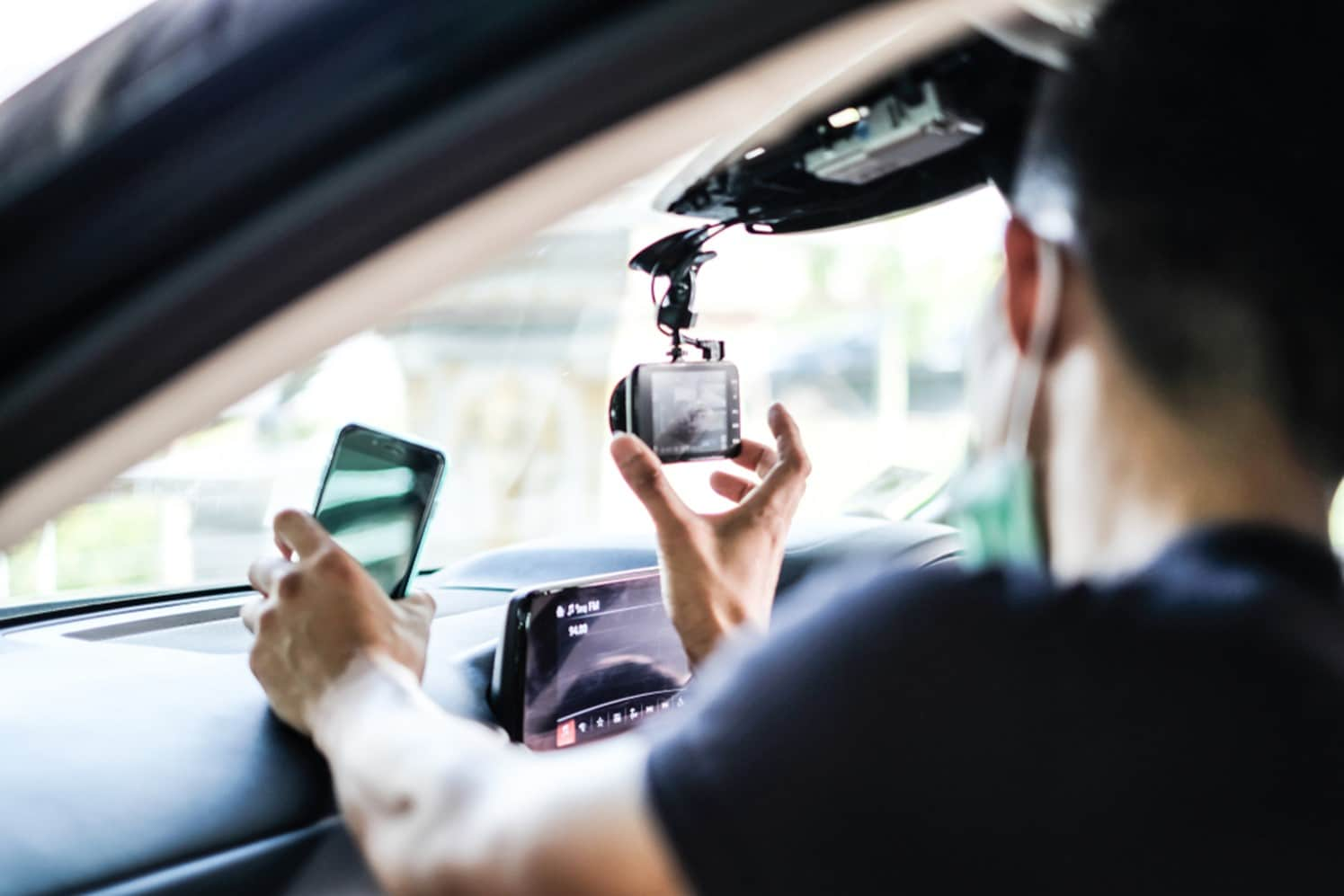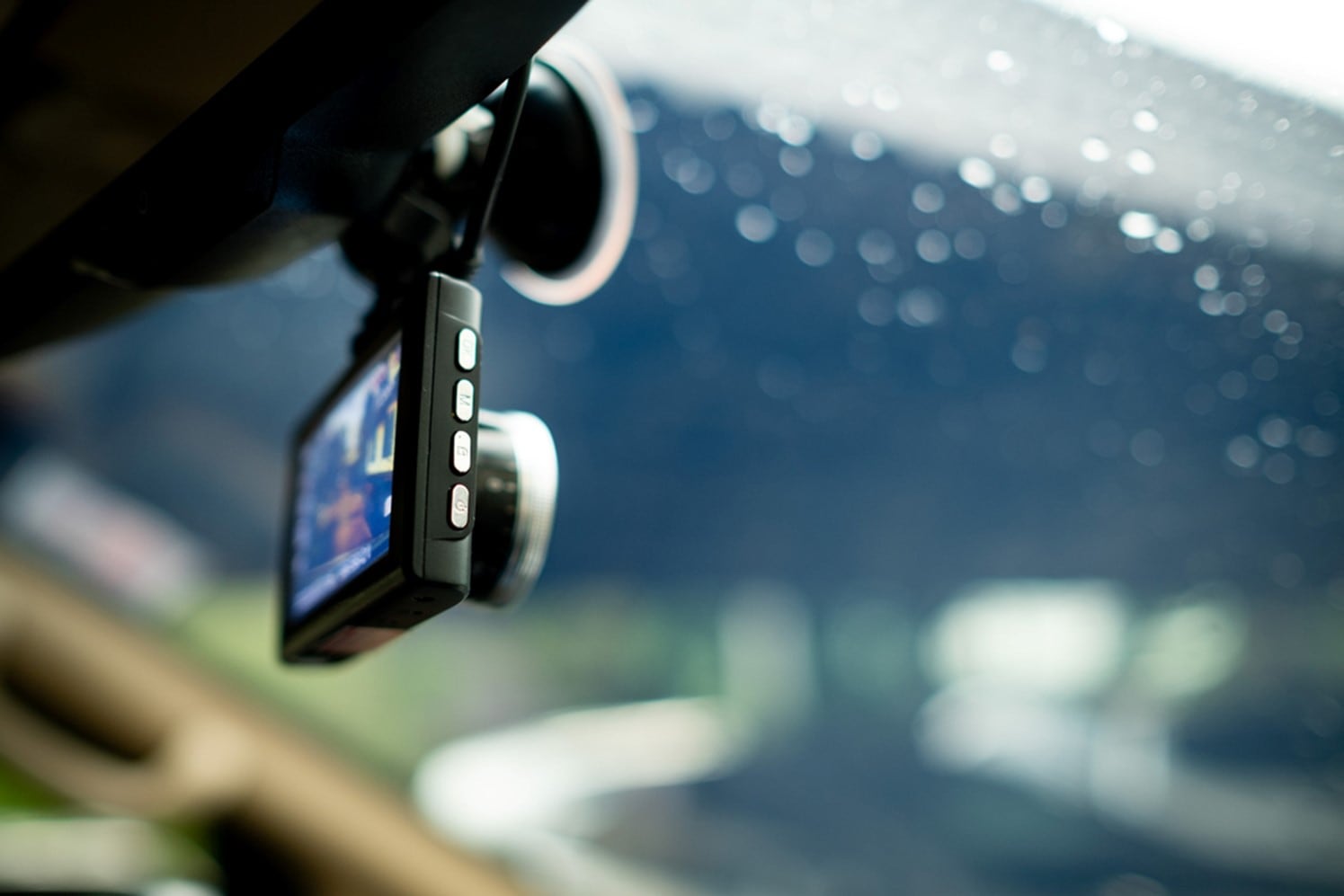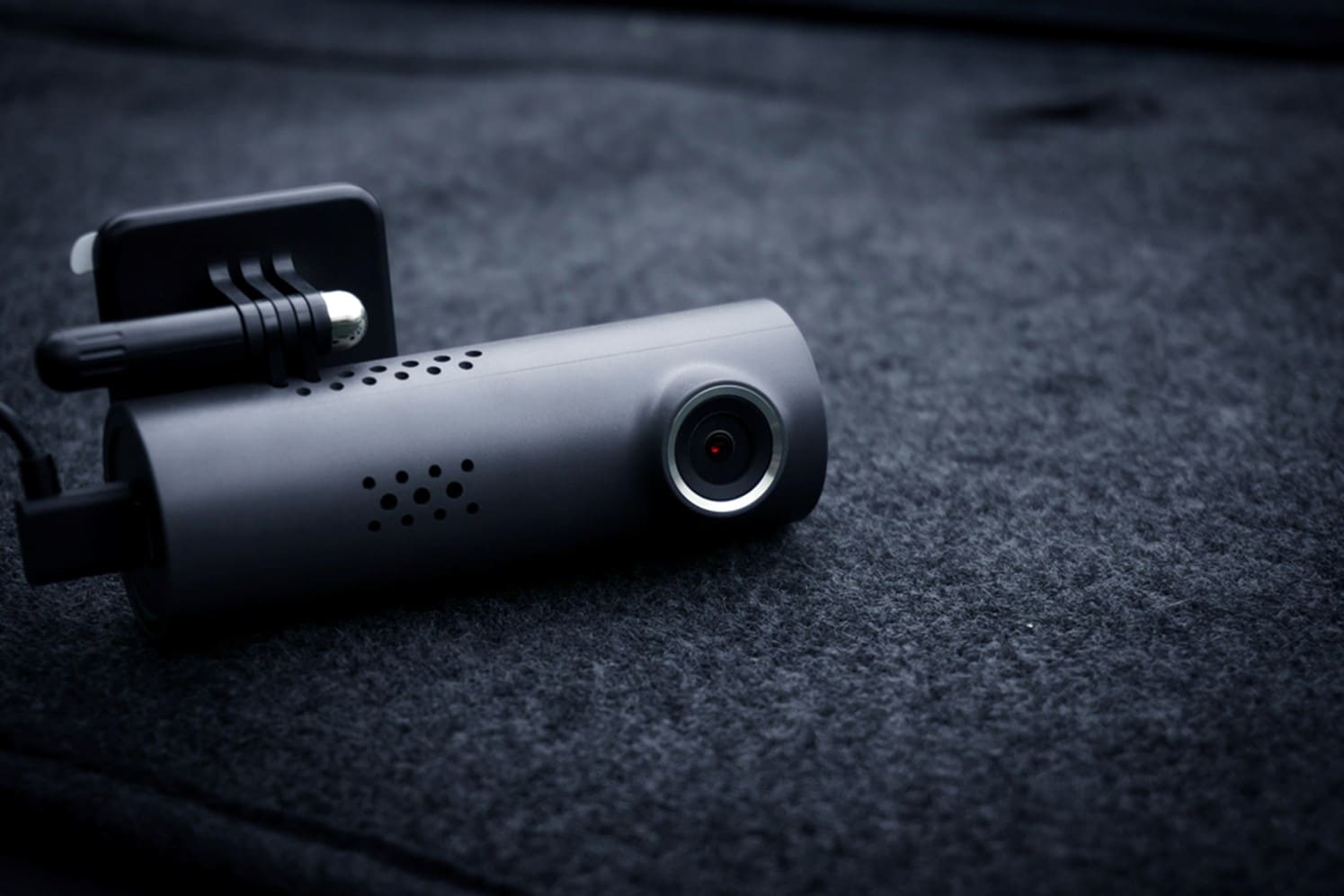
Did you know that Missouri had more than 130,000 car crashes in 2020? Those automobile accidents accounted for hundreds of millions of dollars in collision shop restorations, insurance premium increases, and property damage repairs. That’s certainly a hefty sum. Although dashcams, or in-car dashboard cameras, may not directly prevent car accidents, they do serve to reduce drivers’ out-of-pocket costs after the dust settles. These are 10 of the best reasons why buying a good dash camera is so beneficial.
10 Reasons Why You Need a Car Dashcam
1. Indisputable Record of the Accident
Of course, the #1 reason to own a vehicle dash cam is to record car crashes – preferably ones for which you aren’t at fault. Dashboard cameras, or simply dashcams, act as witnesses of the entire accident, offering auto insurance companies, law enforcement, and juries or judges a front-row look at who’s to blame for the collision. Without this video evidence, guilty drivers may get off, scot-free.Take this scenario: You’re in the righthand lane on I-44. Another vehicle merges from the on-ramp but doesn’t yield to you, resulting in your vehicle rear-ending their vehicle. In most similar situations, the driver who’s in the back is assumed at fault. With dashcam footage of the accident, you can prove that the other driver did not yield as required.
Essentially, a dashcam is the best proof to defend yourself in court or when disputing an insurance claim. It will save you a lot of time and stress.
2. Prevent Auto Insurance Fraud
As sure as the sun is hot, you can bet there are unsavory folks out there who will lie, cheat and con their way to a payday. Some drivers will cause accidents in an effort to collect money from you and your insurance company. Even pedestrians will fake injuries after “being hit” by your vehicle (see video below).Dashcams dish out that sweet, sweet karma once the police show up to the scene.
3. Record Other Reckless Drivers
Road rage. Drunk driving. Hit-and-runs caused by uninsured motorists. People can be incredibly irresponsible behind the wheel, causing accidents, property damage and even injuries – or worse.A dashboard camera records these incidents, so you won’t have to remember license plate numbers or vehicle models. Simply rewind the tape when reporting an unsafe driver. Many states allow residents to submit reports on reckless drivers. If you are a concerned citizen in Missouri, you can report a driver or incident by following the steps outlined at mo.gov.
4. Capture the Family Road Trip on Video
Ensure every mile of your family vacation is recorded with a car windshield camera. Like a personal videographer, a 1080p dashcam captures memory after memory, enabling you to edit together a shareable video once you get back home. Wax nostalgic as you watch old family vacations unfold decades later -- it’s the $100-ish gift that keeps on giving.5. Great Teaching (and Tracking) Tool for Parents
If you’re a worried parent to a newly licensed teenager, a mounted dashcam is an invaluable tool. Not only can the recordings be used to educate, but they can also be helpful in monitoring how well or poorly your teen is abiding by the family rules. Newer dashboard cams for cars may also include GPS software that will record driving speed and routes taken.Even so, a good dash camera isn’t a replacement for a safe car. Invest in a quality vehicle that includes advanced safety technology to protect your teen driver. Newer Honda models come with Honda Sensing, a suite of driver-assist and safety features, that safeguards all occupants of the vehicle. Contact a member of our Roper Honda sales team to learn more or to schedule a test drive in a family-friendly Odyssey, Pilot or CR-V.
6. Extra Features

Old dashboard video cameras did one thing: Record video. Today’s modern dashcams have a ton of other useful features that make life behind the wheel easier, such as GPS navigation, trip and route management, high-def LCD screens, file management, motion-capture software, cloud uploading, and even solar-powered charging.
7. Identify Vandals & Hit-and-Runs
A new dashboard camera with motion-sensor activation is an excellent investment, especially for drivers who are worried about issues like catalytic converter theft. The camera will turn on and begin recording if your vehicle begins to move while parked. Buses could sideswipe your mirror off. Vandals may spray paint and destroy your windows. Attempted break-ins, tire theft, unlawful towing and even shopping cart run-ins will activate the dashboard camera, too.And if your camera automatically uploads video to the cloud, you can witness the damage from anywhere.
8. Monitor Drivers in Fleet or Commercial Vehicles
Businesses with a fleet should absolutely consider installing dashcams in all their vehicles. These dashboard video recorders help to track employees’ actions while conducting business. Implementing dashcam systems in all company vehicles may also allow you to get a substantial discount on your business’s insurance.9. Proof to Get out of a Ticket
If you’re pulled over for an alleged traffic violation you *know* you didn’t commit, showing the recorded dashcam footage to police can help you get out a ticket on the spot. Of course, police officers may still issue you a citation, which you can appeal and dispute in a court of law using that dashboard camera video. Doing so will not only invalidate the fine, but it will also prevent you from accruing points on your driving record or paying more in auto insurance premiums.10. You Could Save Thousands of Dollars
Again, the benefit of owning a car camera is to save yourself money. The price of a decent dashboard camera for your vehicle is negligible compared to the potential cost of collision repair and insurance rate increases, let alone any court fees associated with defending oneself.Need help choosing the right in-car camera system for your Honda? Here are some key features and things to keep in mind as you shop.
What to Look for When Buying a Car Dash Cam

Dashcam features vary. Some of those features will be superfluous to certain drivers but imperative to others, and vice-versa.
For instance, businesses with fleet vehicles may require recorded dashcam footage to be uploaded to the cloud automatically, while new Honda Accord owners may just want a dash cam to protect them in case of a crash or theft.
Which type of dashcam should you buy? Let’s go over the 7 most important dashcam features to look for when you go about choosing a product.
1. Dashcam Video Quality
One of the most important items to consider when buying a dashboard camera for your car is picture quality.Resolution
Just like the TV you have at home, dash cameras film by the pixel – 1080p means the video is recorded at a resolution of 1,080 pixels per image, and 2160p is effectively double that resolution (2,160 pixels), providing you with a much clearer image. (Then you have 4k dashcams, but those are pretty pricey.)
Sound alien to you? No problem. Just remember that the higher the pixel count, the better the video quality. But a 1080p dashcam is typically good enough for more drivers.
Frames per Second
FPS, or the rate of frames recorded per second, is another spec to consider. The more frames that are being recorded, the more vibrant and smooth the video. Older CCTV systems will have a very low frame rate, almost as if it’s taking grainy pictures. Newer cameras will have a higher FPS, which translates to beautiful film quality.
The majority of dash cams will record at 30 FPS – this is acceptable in most instances, as the human eye can only perceive anywhere from 10 to 48 frames per second.
More expensive dash cams will record at 60 FPS – this is best when you want to capture video of more than just car accidents. The downfall is that 60 FPS dashcams will need more physical or cloud storage space to retain video, so it’s important to take that into consideration.
FOV (Field of View)
A dashcam’s FOV dictates how wide a camera can see. A narrow FOV usually means the camera will record what’s outside the windshield only, while a wide FOV allows the camera to record further out, usually to and past the side-view mirrors.
You do have to consider the negatives of each FOV, however. With a narrower field of view, cameras only record what’s in front of the car, far less than what you would usually see. With a wider field of view, you get the benefit of recording more area, but image quality can stretch or become distorted as the FOV widens.
There is no standard spec regarding FOV measurement, so the best way to preview a dashboard camera’s field of view is to check for screenshots or video footage, then compare those with other products.
2. Mounting
Dashcam recording quality is paramount, but you shouldn’t skip over the logistics of using your new car camera – that is, how it will be installed on your dashboard.Adhesive
Traditionally, your dashcam will be mounted directly on your dashboard. Every product has its own proprietary mounting device, but most will utilize an adhesive that you must stick to the dashboard. If you own your car and don’t mind the potential long-term effects of this option – adhesives can discolor the dashboard, leave a sticky residue, or even physical damage or tear materials – then go for it.
Suction or Clip-On
What if you’re leasing, say, a new Honda Civic in Joplin? You probably don’t want to incur the wrath of your Honda dealer or Honda Financial Services at lease-end by damaging the dash. Instead of a traditional dashboard cam, get a car camera that mounts to the windshield or rearview mirror. These products will utilize strong suction cups or clips that can be easily removed. Windshield dash cams also provide you with more flexibility to readjust and reposition as needed.
3. Night Vision
Do a lot of night driving? You should absolutely check out dashcams with night vision functionality.
Normal dashboard cameras won’t record video in low-light settings, ostensibly making them dashboard ornaments when the sun goes down. And what do you know? Car crashes occur more frequently in the evening and at night. That risk is not one to take if you’re a delivery or semi driver running an overnight shipment.
If you choose a night vision dashcam, don’t quibble over the small details. If the video quality enables you to make out details when it’s pitch-black, it should be good enough.
4. Storage
Recording video takes up a lot of space. If you call your Honda Ridgeline your second home, you’ll want to buy a dashcam with a large built-in storage system or buy several large MicroSD cards or external hard drives.Dashcam storage usually begins at 4GB – enough for 10-ish hours of normal, everyday driving. Recordings can be deleted as needed, freeing up more space. But these dash cams will usually also be fashioned with MicroSD card slots, enabling you to increase the storage capacity to 512GB (or greater). Then there's cloud storage (see point #5 below), which is the most convenient way to retain dashboard camera footage.
What’s best for you? That depends on your proclivity for driving. In any event, it’s best to have at least 32GB of storage, just in case; but don’t quiver at the thought of upgrading to 128GB or more if you know you'll be on the road for extended periods. Just be sure to check your dash cam’s manual to ensure you’re purchasing the right type of SD card.
5. Wi-Fi vs. Bluetooth
It’s a smart world out there. Keep up by investing in an appropriately smart dashcam with internet connectivity.In most circumstances, Bluetooth dashboard cams are adequate. Via your smartphone or device, you can connect to the camera and manage storage, view and delete footage, adjust recording settings, and more. This is a godsend, as dashcams are notorious for having poorly designed user interfaces.
Vehicle dashboard cams can also come with built-in Wi-Fi/wireless connectivity. This feature is crucial if you need your recorded videos to be uploaded and stored directly to the cloud. This option may reduce or altogether eliminate your need for SD cards or external storage devices, but you’ll want to ensure your vehicle has Wi-Fi.
In that case, you may want to invest in a Honda Accord Touring, which comes standard with Wi-Fi courtesy of AT&T. Your dash cam can connect to it, and you’ll also have the ability to enjoy wireless video streaming from the driver’s seat.
6. Parking Mode/Motion Detection
Your dash cam will record video when you’re driving, but what happens when that new Accord of yours is parked? A dashboard camera with motion detection is crucial if you’re concerned about thieves or hit-and-runs.Using special sensors to monitor impacts and motion, these dashboard cams will only trigger a recording if the system deems it necessary. For instance, if someone tries to break open your Accord’s window, the camera will automatically begin recording up to the moment it either runs out of battery or the motion is no longer detected. The footage is kept on the device, though we recommend one that will upload the recording to the cloud, allowing you (and your insurance company, the police, and judge) to see what in the world transpired.
This dashcam feature is usually available on “premium” models, but it’s one that drivers shouldn’t skimp on.
7. GPS
While not necessarily important for your everyday driver, dashcams with GPS are great for parents, SMB and fleets. They log the vehicle’s speed and location while recording, allowing parents, business owners and fleet managers to track and monitor the vehicle from essentially anywhere on God’s green earth.In some instances, GPS dash cams can also track vehicles that are stolen. You’re paying more for peace of mind, but it’s something to contemplate.
In the grand scheme of things, having a dashcam for your car is one small price (under $300, usually) to pay for peace of mind. You never know when someone – or something – will ruin that gorgeous new Honda Accord.
Although we don’t sell dash cams, our Honda dealership near Springfield does offer a bit of additional peace of mind in the form of new and used Hondas for sale in Joplin. Take the new Accord for instance (again). It comes standard with Honda Sensing, which includes driver-assist and safety features like Lane Keeping Assist and Adaptive Cruise Control with Low-Speed Follow. And that’s something dashcams can’t do: Prevent an accident.
Call Roper Honda, your Joplin car dealer of choice, at (417) 625-0800 to book a time for a test drive or learn more about Honda Sensing. Our Joplin Honda dealership is located at 902 N Rangeline Rd and serves the entire region, including Pittsburg, KS and Miami, OK.